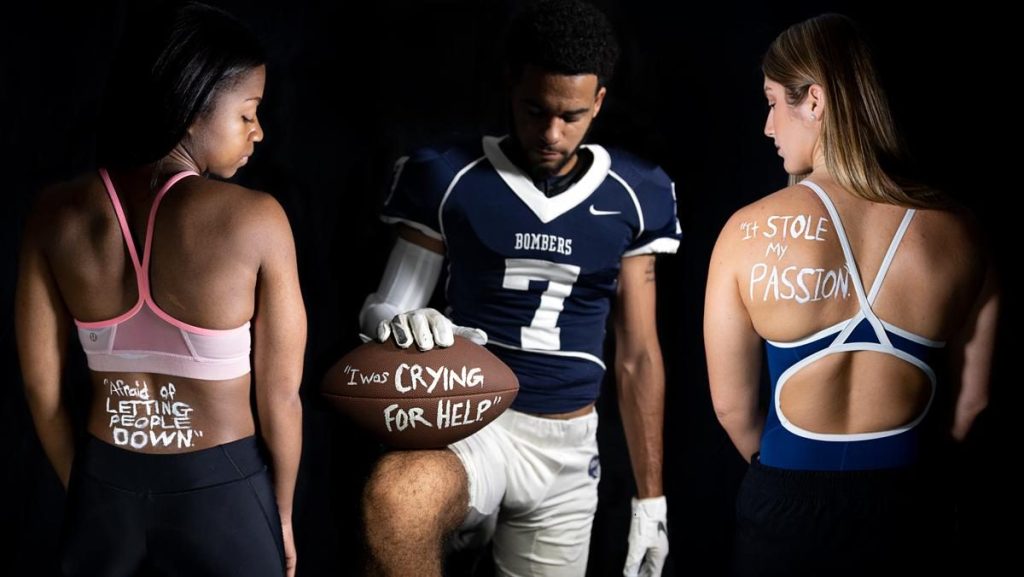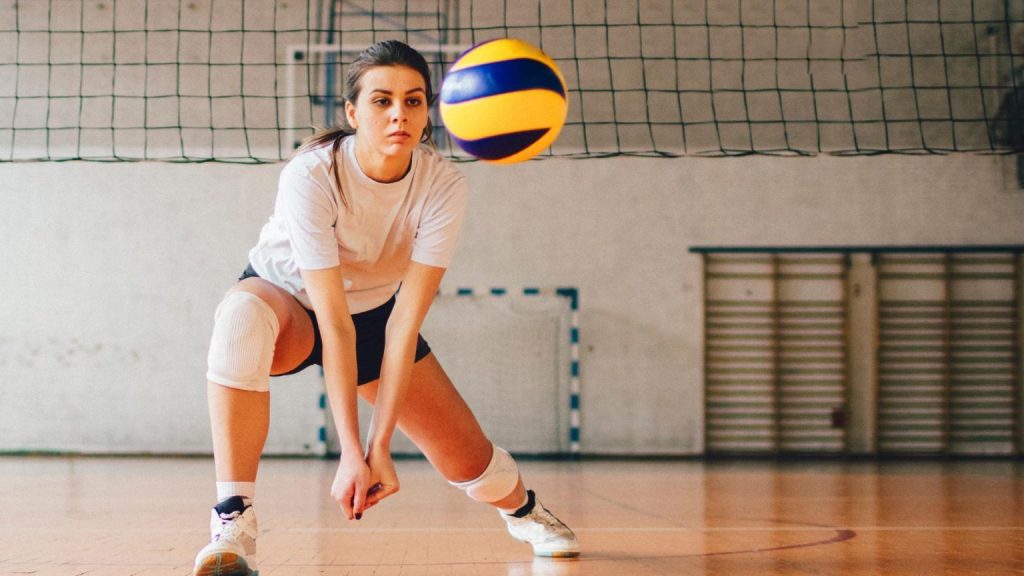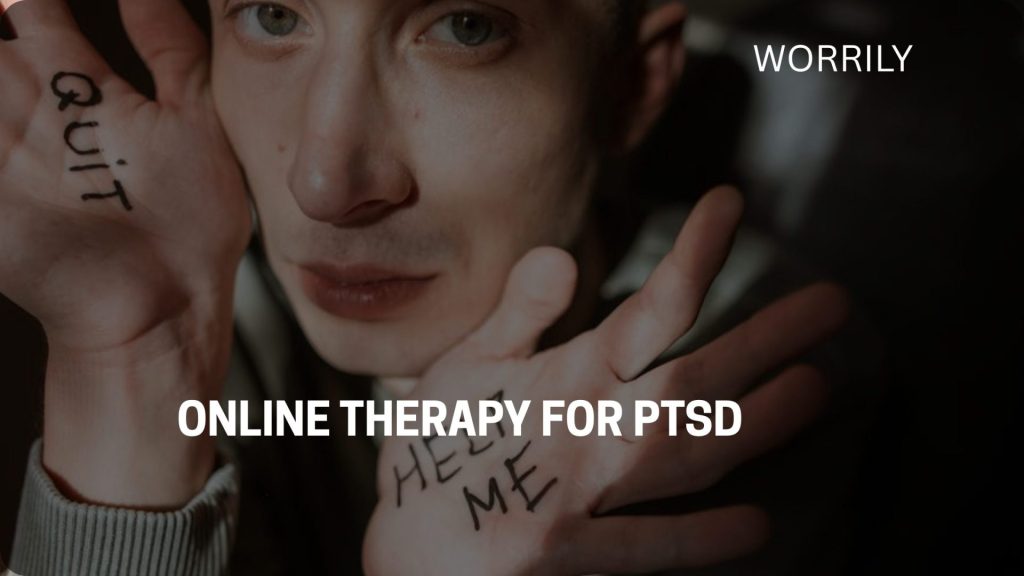Student-athletes are no strangers to pressure. The intense demands of training, competition, and academic performance can take a toll on mental health. But for those who have experienced trauma whether from injuries, accidents, abusive coaching, or other distressing events Post Traumatic Stress Disorder (PTSD) can make life even more challenging.
The good news? Online Therapy for PTSD provides an accessible and effective way for student-athletes to manage PTSD while keeping up with their demanding schedules.
Understanding PTSD in Student Athletes

Credit : ITHCAN
PTSD is often associated with military veterans, but athletes can also experience it. A traumatic event—such as a severe sports injury, a violent altercation on the field, emotional abuse from coaches, or personal life traumas can lead to PTSD symptoms like flashbacks, anxiety, nightmares, and avoidance behaviors.
For student-athletes, PTSD can impact performance, focus, and overall well-being. It may cause fear of returning to play, withdrawal from teammates, or even a decline in academic performance. Seeking help is crucial, and Online Therapy for PTSD offers a flexible solution.
Why Online Therapy is Ideal for Student Athletes

Credit : Riveroakpsychology
1. Fits Into a Busy Schedule
Balancing sports, school, and personal life is tough. Online therapy allows athletes to attend sessions at convenient times without disturbing training or academic activities Whether it’s a late night ,therapy can fit into your lifestyle.
2. Provides Comfort and Privacy
Discussing trauma can be difficult, especially in an unfamiliar setting. With online therapy, student athletes can talk to a licensed therapist from the comfort of their dorm room, home, or any private space. This reduces the stigma and makes opening up easier.
3. Helps With Performance Anxiety and Mental Blocks
PTSD can trigger performance related anxiety, making it hard to focus during games or practices. Online therapy provides coping techniques, such as Cognitive Behavioral Therapy (CBT), to help athletes regain confidence and manage stress.
4. Offers Access to Specialized PTSD Therapists
Not all schools or sports teams have in house mental health professionals. Online therapy connects student athletes with experienced PTSD specialists who understand the unique pressures of competitive sports.
5. More Affordable Than Traditional Therapy
Many student athletes may not have the financial resources for in person therapy. Online platforms often offer subscription plans or financial aid, making professional help more accessible.
Self-Help Strategies for Managing PTSD
While professional therapy is crucial, student-athletes can also take steps to manage PTSD symptoms in their daily lives. Here are some effective strategies:
- Mindfulness and Meditation – Practicing mindfulness techniques can help reduce anxiety and improve focus during games and studies.
- Regular Exercise – Physical activity, especially non-competitive forms like yoga or swimming, can reduce stress and enhance mental well-being.
- Journaling – Writing about traumatic experiences and emotions can be a therapeutic way to process them.
- Social Support – Connecting with teammates, friends, or support groups can provide comfort and reduce feelings of isolation.
- Adequate Rest – Sleep disturbances are common with PTSD, so maintaining a consistent sleep schedule can help regulate mood and stress levels.
Best Online Therapy Platforms for PTSD in Student-Athletes
- BetterHelp – Provides access to licensed therapists with expertise in trauma and sports-related anxiety. (BetterHelp)
- Talkspace – Allows flexible communication through video, voice, and text messaging. (Talkspace)
- Online-Therapy.com – Specializes in CBT, a highly effective treatment for PTSD. (Online-Therapy)
- Thriveworks – Offers therapy sessions tailored for young adults and athletes. (Thriveworks)
- Headspace Health – Combines mindfulness techniques with professional therapy. (Headspace)
How to Get Started with Online Therapy

Credit: Bcsnygroup
- Recognize the Signs – If you experience flashbacks, anxiety, or fear related to a past event, therapy can help.
- Find the Right Platform – Choose an online therapy service that fits your needs and budget.
- Check Therapist Credentials – Ensure they specialize in PTSD and sports-related trauma.
- Commit to the Process – Therapy works best when attended regularly, so stay consistent.
- Apply Coping Strategies – Work with your therapist to develop techniques for managing stress and anxiety.
Success Stories: How Athletes Overcame PTSD with Online Therapy
Case Study 1: Overcoming Injury-Related PTSD
Jake, a collegiate football player, suffered a severe leg injury that ended his season. The trauma led to nightmares, anxiety, and a fear of returning to play. Through online therapy, he used CBT techniques to process the event, rebuild his confidence, and eventually return to the field.
Case Study 2: Healing from Emotional Abuse in Sports
Samantha, a high school gymnast, experienced emotional abuse from a coach, leaving her with deep anxiety and trust issues. With the help of an online PTSD therapist, she learned coping strategies, set healthy boundaries, and regained her love for the sport.
Final Thoughts
PTSD doesn’t have to sideline your athletic career or academic goals. Online Therapy for PTSD makes it easier than ever to access professional help while keeping up with your sport and studies. If you’re struggling, don’t hesitate to reach out—healing is possible, and support is just a click away. For more information about PTSD and mental health, visit National Institute of Mental Health or American Psychological Association.
Overcome Your PTSD with Online Therapy
Post-traumatic stress disorder (PTSD) is an anxiety disorder that some people get after experiencing a threatening and painful event like an accident, sexual abuse, war, bad experience in health care, etc.
If you have experienced a traumatic event in your life and are faced with flashbacks of this trauma, memory loss, feeling much more anxious and vigilant compared to before, or avoiding things that remind you of the trauma, then you might be suffering from PTSD. Note that these symptoms often appear within a few weeks but can also take years.
Our therapy for PTSD is based on cognitive behavioral therapy (CBT). With the guidance of your therapist and CBT for PTSD, you will work through the traumatic memories, maybe even visiting situations and/or places that remind you of your trauma.
While this might sound painful, it has been proven in numerous research studies to be an effective way to overcome PTSD.
Start Your Healing Journey Today
Get matched with a licensed therapist and take the first step towards overcoming PTSD.
